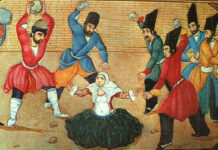Dengue fever cases surged in Sudan amid the ongoing rainy season. The dengue outbreak is hitting Khartoum, Omdurman and Bahri, as stagnant rainwater, blocked drains and uncollected rubbish drive mosquito and fly populations higher. Sudan reports over 6,000 dengue fever cases and nine deaths this year. The disease develops into severe dengue (previously known as dengue hemorrhagic fever or dengue shock syndrome).
KHARTOUM AUGUST 28: Dengue fever cases surged in Sudan amid the ongoing rainy season, with residents citing poor sanitation and mosquito breeding as contributing factors. Residents have reported a surge in fever cases across neighborhoods of Khartoum, amid growing difficulties in finding hospitals to admit patients. Medical sources attributed the outbreak of fevers to the widespread mosquito infestation. The dengue outbreak is hitting Khartoum, Omdurman and Bahri, as stagnant rainwater, blocked drains and uncollected rubbish drive mosquito and fly populations higher amid a breakdown in public services.
Sudan reports over 6,000 dengue fever cases and nine deaths this year as health officials warn mosquitos are spreading rapidly across the capital.
Dengue fever is a mosquito-borne disease caused by dengue virus, prevalent in tropical and subtropical areas. Most cases of dengue fever are either asymptomatic or manifest mild symptoms. Symptoms typically begin 3 to 14 days after infection. They may include a high fever, headache, vomiting, muscle and joint pains, and a characteristic skin itching and skin rash.
In some cases, the disease develops into severe dengue (previously known as dengue hemorrhagic fever or dengue shock syndrome) with bleeding, low levels of blood platelets, blood plasma leakage, and dangerously low blood pressure.









